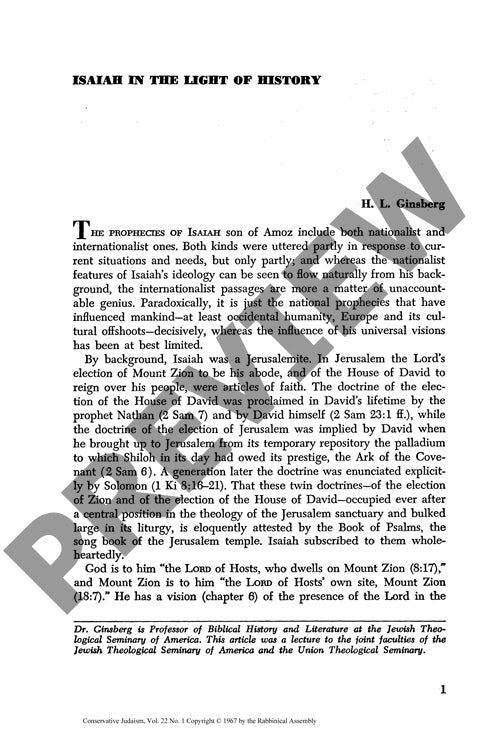Isaiah in the Light of History
Couldn't load pickup availability
Isaiah's prophecies represent a pivotal evolution in messianic thought, moving from traditional promises of Davidic supremacy to an unprecedented vision of universal peace and divine wisdom. By examining Isaiah's proclamations against the backdrop of Assyrian expansion under Tiglath-pileser and Sargon II (734-705 BCE), this research reveals how the prophet's complex worldview emerged from and transcended his Jerusalemite origins. Close textual analysis traces the development of messianic doctrine through three distinct stages, identifying Isaiah as the architect of its final form: a charismatic, divinely-endowed future ruler. While his nationalist prophecies stemmed naturally from belief in Mount Zion's election and Davidic authority, Isaiah's universalist visions - including Gentile conversion and global peace - marked a revolutionary departure from earlier Hebrew literature. Through historical investigation, the research demonstrates a striking paradox: Isaiah's nationalist prophecies, later adopted by Christianity, have profoundly shaped Western civilization, while his more innovative universalist ideals have seen limited fulfillment. Only his vision of nations worshiping the God of Jacob has partially materialized, while his unprecedented conception of global peace remains unrealized, testifying to both the scope and limitations of his religious genius.

More Information
-
Physical Description
-
Publication Information
Published 1967
ISBN
-
Publication Credits
H. Ginsberg

